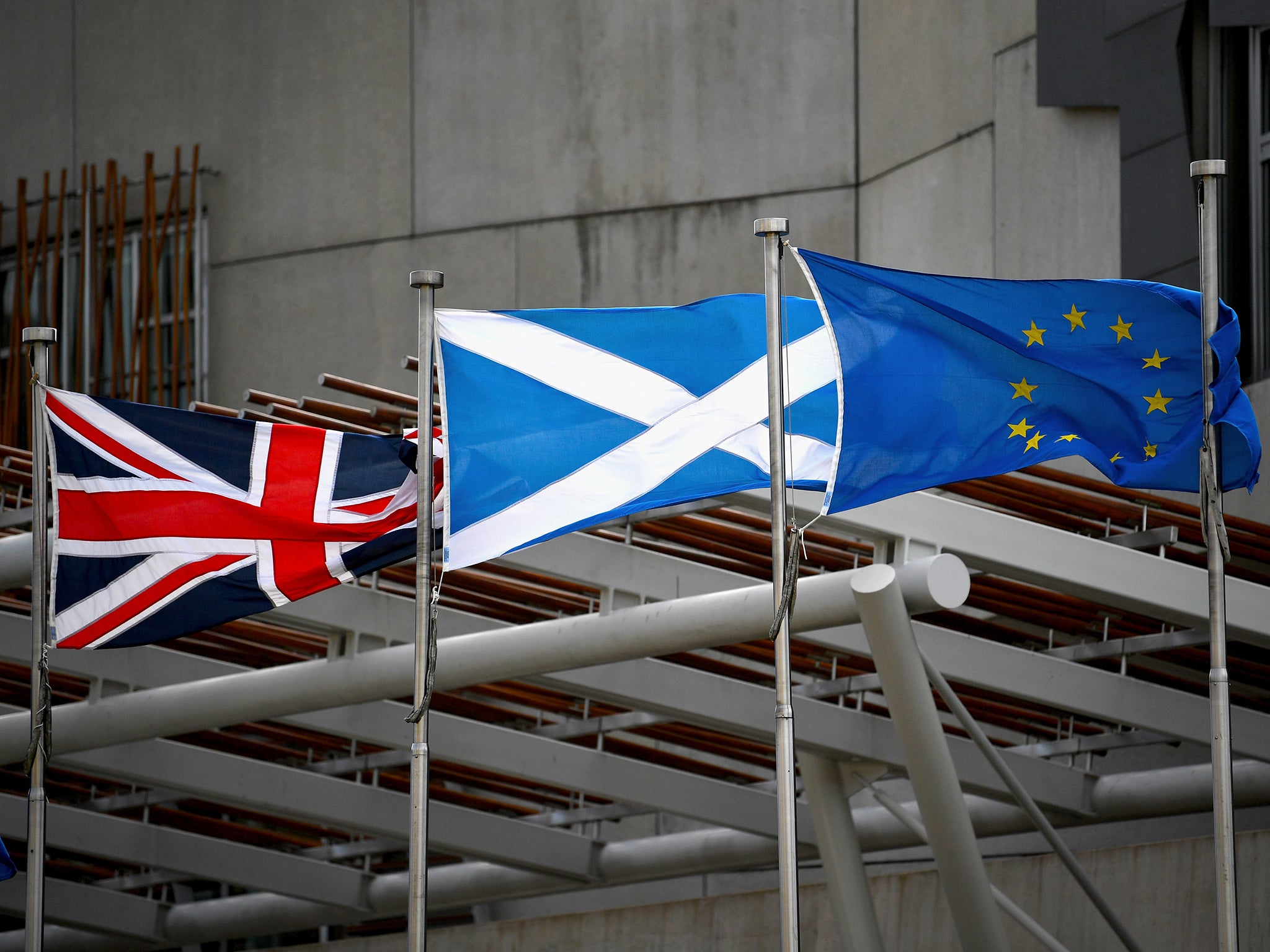Scotland could leave the UK and join Canada instead, says author
'Even as a typical Canadian province, it would have more powers than it does now,' says Ken McGoogan

Scotland should join Canada if it decides to leave the UK after Brexit, an author has suggested.
Ken McGoogan said the idea made sense as in the modern era technological advancements made geographical boundaries “irrelevant”.
If Scotland was to become a province of Canada it would be the third largest and make up 12.6 per cent of the population, compared with the eight per cent it represents in the UK, the Canadian author wrote in a comment piece for The Globe and Mail newspaper.

He added that the country would have much more autonomy under the Canadian provincial system.
“No, Scotland would not become fully independent," he wrote. "But even as a typical Canadian province, it would have more powers than it does now."
He added: “Provincial legislatures have jurisdiction over their internal constitutions and direct taxation for provincial purposes, including for municipalities, school boards, hospitals, property and civil rights, administration of civil and criminal justice, and the list goes on".
Under the terms of the Canadian Constitution, Scotland would be able to keep its oil revenues from the North Sea because provinces control their own natural resources, he said.
If they included the 4.7 million Canadians who claim Scottish descent they could make up a “power block” of nearly 25 per cent of the country’s population, he added.
He also pointed out that Edinburgh is closer to St John’s, a city on an island off the Canada’s eastern coast, than it is to Athens in Greece.
Scotland’s First Minister Nicola Sturgeon called for a second independence referendum, after Britain as a whole, voted to the leave the EU.
Pointing out that almost two thirds of her countrymen had voted to Remain, she said Brexit meant “a significant material change” to Scotland’s constitutional position, especially if Prime Minister Theresa May opts for a hard Brexit ending access to the single market.
Mr McGoogan, whose titles include How the Scots Invented Canada, insisted that Scotland would not necessarily have to give up its bid to rejoin the European Union if it joined his home country.
He said: “What if, after Brexit, Scotland applied to rejoin, not as a nation of 5.3 million, but as part of a country of 41.8 million. Obviously, it would have more clout. For Canadians, Scotland would establish a foothold in multicultural Europe.
“So, while the Tories in Britain and the Republicans in the United States set about creating a neo-liberal Anglosphere – anti-egalitarian, avowedly Christian, pro-Big Business, pro-military – Scotland becomes part of Canada and helps lead the way to a more progressive world.”
Join our commenting forum
Join thought-provoking conversations, follow other Independent readers and see their replies
Comments
Bookmark popover
Removed from bookmarks